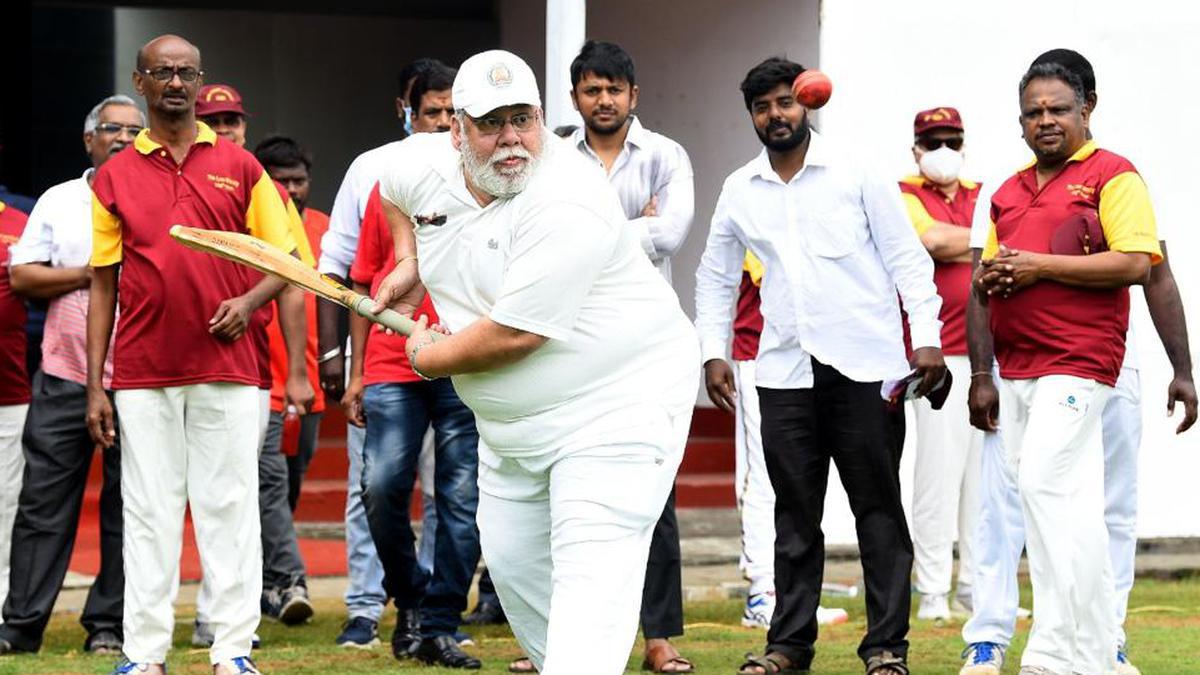
Madras High Court Chief Justice’s XI to clash with Advocate General’s XI at Chepauk on January 20
The Hindu
Cricket match between Madras High Court Chief Justice's XI & Advocate General's XI to take place in Chennai on Jan 20, 2024. Judges & lawyers have begun practice.
The seventh edition of Madras High Court Chief Justice’s XI versus the Advocate General’s XI is all set to take place at the M.A. Chidambaram cricket stadium in Chepauk in Chennai on January 20, 2024. The judges and the lawyers have already begun their net practice.
Ever since the annual cricket match, conducted during the Pongal season, was started in 2018 by then AG Vijay Narayan and advocate V. Ramesh, the judges have won on only one occassion, during the tenure of former Chief Justice Amreshwar Pratap Sahi in January 2020.
The expectations this year have risen, because incumbent Chief Justice Sanjay V. Gangapurwala is a keen sportsman and a tennis player himself. Incumbent Advocate General A.G. Shunmugasundaram too, has been showing a keen interest in the matches for past three years.
Further, with the appointment of many young judges in the past one year, some new players in the age group of 50, are expected to strengthen the CJ’s XI.
While Justices S. Vaidyanathan, Abdul Quddhose and N. Anand Venkatesh have been among the star players for the CJ’s XI, Senior Counsel P.R. Raman and Additional Solicitor General AR.L. Sundaresan had been steering the A-G’s XI to victory in most of the matches played so far.
The AG’s XI had won the sixth edition last year by seven wickets. It had reached the target of 113 runs in 17.3 overs after losing three wickets.

“Writing, in general, is a very solitary process,” says Yauvanika Chopra, Associate Director at The New India Foundation (NIF), which, earlier this year, announced the 12th edition of its NIF Book Fellowships for research and scholarship about Indian history after Independence. While authors, in general, are built for it, it can still get very lonely, says Chopra, pointing out that the fellowship’s community support is as valuable as the monetary benefits it offers. “There is a solid community of NIF fellows, trustees, language experts, jury members, all of whom are incredibly competent,” she says. “They really help make authors feel supported from manuscript to publication, so you never feel like you’re struggling through isolation.”

Several principals of government and private schools in Delhi on Tuesday said the Directorate of Education (DoE) circular from a day earlier, directing schools to conduct classes in ‘hybrid’ mode, had caused confusion regarding day-to-day operations as they did not know how many students would return to school from Wednesday and how would teachers instruct in two modes — online and in person — at once. The DoE circular on Monday had also stated that the option to “exercise online mode of education, wherever available, shall vest with the students and their guardians”. Several schoolteachers also expressed confusion regarding the DoE order. A government schoolteacher said he was unsure of how to cope with the resumption of physical classes, given that the order directing government offices to ensure that 50% of the employees work from home is still in place. On Monday, the Commission for Air Quality Management in the National Capital Region and Adjoining Areas (CAQM) had, on the orders of the Supreme Court, directed schools in Delhi-NCR to shift classes to the hybrid mode, following which the DoE had issued the circular. The court had urged the Centre’s pollution watchdog to consider restarting physical classes due to many students missing out on the mid-day meals and lacking the necessary means to attend classes online. The CAQM had, on November 20, asked schools in Delhi-NCR to shift to the online mode of teaching.









